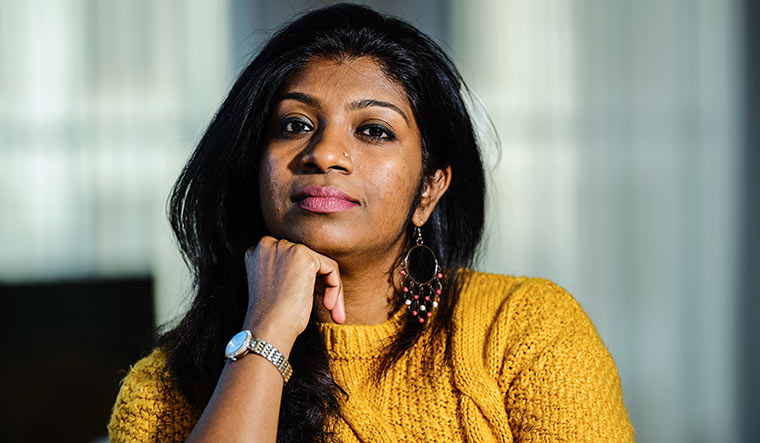Christina Dhanaraj
writer and dalit rights activist, Bengaluru/New York
Christina Dhanaraj has more than a decade of corporate work experience in India, Singapore, China, and the Netherlands. She is the co-founder of the ‘Dalit History Month’ project and has published works on intersectional discourses between caste, gender, religion, race, and sexuality. She is currently a consultant for corporates and non-profits, advising on communications, organisational strategy, and caste-based diversity, equity and inclusion. She is also the convenor for the Global Campaign for Dalit Women, and is working on her first non-fiction book on dalit women and the fullness of life.
The change I would like to see
This year, the theme of the International Women’s Day is #EmbraceEquity. This is not an unfamiliar mandate. And yet, as a dalit woman, I find it hard to digest that IWD themes are not always perceived as being relevant to caste-marginalised women. Indeed, our stereotypical notions of gender, work, and womanhood are partly to blame. But we must also recognise that most of us interpret these themes while inhabiting our own social bubbles, which are bound by the contours of our caste, class, and gender.
Also read
- 'Want to help create inclusive spaces': Tanvi Sriramaneni
- 'Parents should be educated about breastfeeding': Jincy Varghese
- How women of this generation are more opinionated and outspoken
- 'Want to see more psychologists spreading awareness on social media': Divija Bhasin
- 'Want to change culture of unkind behaviour at workplaces': Podcaster Cardoz
- 'We cannot call ourselves animal lovers if we ignore their suffering': Priyanka Mehar
This International Women’s Day, my hope is that we step out of our bubbles and wake up to the reality of caste-based sexual violence. A majority of dalit women in India are survivors (or victims) of some kind of sexual violence. According to the 2020 data of the National Crime Records Bureau, around 10 dalit women/girls are sexually assaulted every day in India. This is, of course, a grossly under-reported number, since most cases go unreported for fear of retaliation. And for those cases that make it to the police station and eventually, the court, justice is not always assured.
What does #EmbraceEquity mean in such a context? A context that is mired in helplessness and injustice? How can dalit women, as individuals and as communities, work towards empowering themselves? How do we adopt mechanisms that can achieve both equality and equity? And ensure safety, access, and dignity? How do dalit women live fully without fearing for their lives? These are some of the questions dalit women activists and thinkers will be grappling with this women’s day, and I hope you do too.
As told to Nirmal Jovial

